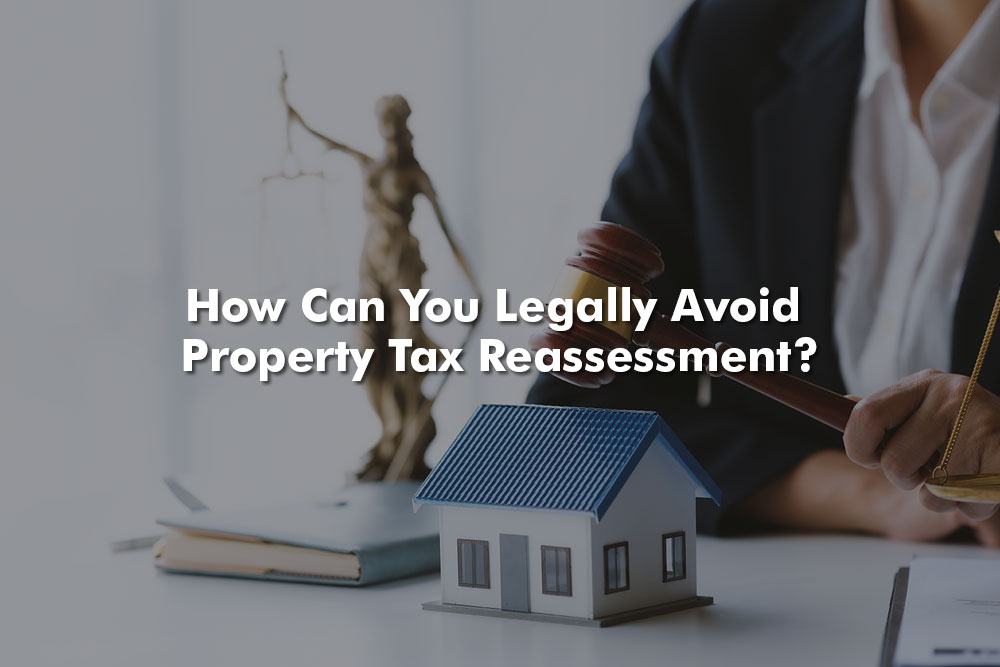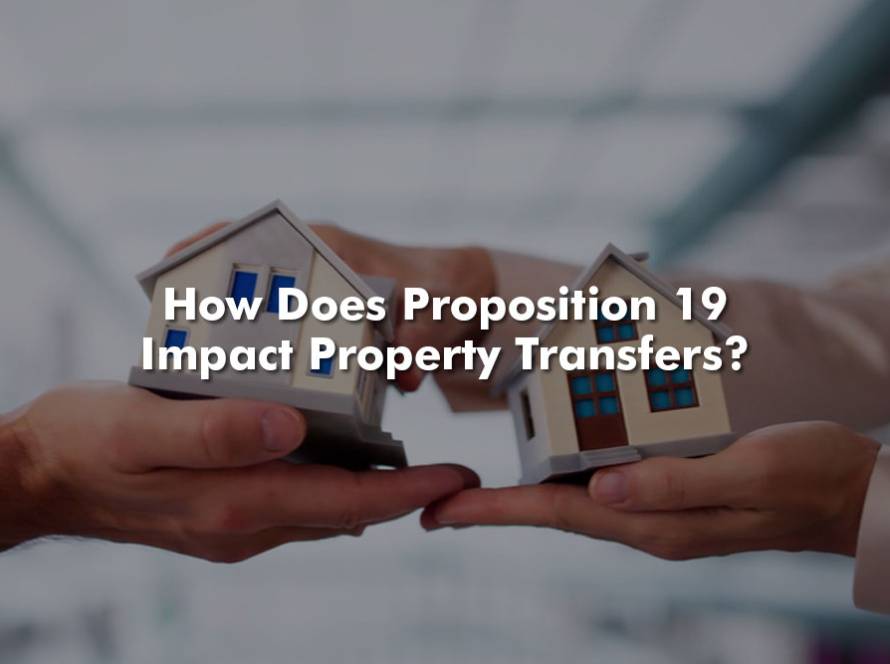Owning property in California comes with the benefit of Proposition 13, which stabilizes property taxes by limiting annual increases. However, when a property is sold or transferred, it is typically reassessed at current market value, often causing a significant tax increase for the new owner.
The good news is that certain legal strategies and exclusions can help you avoid or minimize property tax reassessment. These methods are especially important for families transferring property, business owners with real estate assets, and those creating trusts or estate plans.
We’ll explain how property tax reassessment works, when it’s triggered, and how proper estate planning can protect your property tax base — legally and effectively.
Understanding Property Tax Reassessment in California
Under California law (Prop 13), your property tax is based on your home’s assessed value when you purchase it, plus a small annual increase (no more than 2% per year). This allows long-term property owners to enjoy relatively low taxes even as their property value increases over time.
A reassessment occurs when:
- You sell or transfer ownership of your property
- You add or remove owners from the title
- You transfer property to or from a legal entity (like an LLC or trust) without following certain rules
When reassessment happens, the tax base resets to the current market value — which can double or even triple your property taxes.
For example:
If you bought a San Diego home 25 years ago for $400,000 and it’s now worth $1.5 million, your taxes are still based on that original value (plus modest increases). But if the property is reassessed after a transfer, taxes could skyrocket based on today’s $1.5 million market value.
Proposition 19 and Its Impact
In 2021, Proposition 19 changed many of the traditional property tax rules that Californians had relied on for decades.
Here’s how it affects property transfers:
1. Parent-to-Child Transfers
Previously, parents could transfer their home (and sometimes a vacation home or rental) to their children without triggering reassessment.
Under Prop 19, this exclusion is now limited only to a primary residence, and only if:
- The child uses it as their primary residence, and
- The property’s market value doesn’t exceed the parent’s assessed value by more than $1 million.
If the value difference is greater than $1 million, a partial reassessment occurs for the excess.
2. Grandparent-to-Grandchild Transfers
This exclusion still exists only if the parents of the grandchild are deceased, and the same primary residence rules apply.
3. Base Year Value Transfers for Seniors and Disabled
Prop 19 allows homeowners aged 55 or older, severely disabled individuals, or wildfire victims to transfer their low property tax base to a new home — anywhere in California — up to three times.
Legal Strategies to Avoid or Limit Reassessment
While property tax reassessment can seem unavoidable, strategic estate planning and entity structuring can help minimize or eliminate reassessment in many cases.
Here are several legal options:
1. Use of a Revocable Living Trust
A revocable living trust allows property owners to transfer ownership into a trust for estate planning purposes without triggering reassessment.
That’s because the beneficial ownership doesn’t change — you remain the owner during your lifetime.
However, care must be taken when adding beneficiaries or changing trustees, as certain changes could trigger reassessment if not structured correctly.
2. Spousal Transfers
Under California law, transfers between spouses or registered domestic partners — whether during marriage, divorce, or after death — are fully exempt from reassessment.
This includes transfers:
- Into or out of a trust
- Between joint tenants or community property with right of survivorship
- Due to divorce or legal separation
3. Business Entity Structuring (LLC or Partnership Transfers)
Owning real estate through an LLC or limited partnership can offer flexibility, privacy, and liability protection.
However, transferring property into or out of a business entity can cause reassessment unless done correctly.
The key is maintaining “proportional ownership” — meaning that the ownership interests of individuals before and after the transfer remain the same.
For example, if two siblings each own 50% of a property and transfer it into an LLC where they each own 50%, no reassessment occurs.
But if one later sells their interest to someone else, reassessment may be triggered.
4. Transferring Interests Gradually
In some cases, property owners strategically transfer ownership over time to avoid triggering the 50% or more change in ownership threshold that causes reassessment.
This technique requires precise legal planning and documentation, as the County Assessor closely monitors ownership percentages.
5. Using Life Estates
A life estate allows you to retain the right to live in the property for life while transferring the remainder interest to a child or beneficiary.
Since the transfer of the remainder interest does not take full effect until your death, this can delay reassessment and preserve your tax base until later.
Common Mistakes That Trigger Reassessment
Even well-intentioned actions can inadvertently cause a reassessment. Here are a few common errors to avoid:
- Adding a child or family member to the title without advice — this can immediately trigger reassessment.
- Improperly transferring property to an LLC or corporation — if ownership proportions change, reassessment occurs.
- Not updating trusts after Proposition 19 — many old estate plans still rely on outdated parent-to-child exclusions.
- Failing to document “proportional ownership” — the Assessor’s Office must clearly see that no ownership change occurred.
Why Legal Guidance Matters
California property tax laws are complex and constantly evolving. Small changes in title or trust structure can lead to massive financial consequences if done incorrectly.
An experienced estate planning attorney ensures that:
- Property transfers are structured to qualify for legal exclusions
- Your trust documents are current and compliant with new laws like Prop 19
- Your children and heirs inherit property without facing unexpected tax hikes
- You maintain liability protection and minimize future reassessment risks
At Allenby Law, we simplify these processes so you can make informed, smart decisions without getting lost in tax codes or legal jargon.
How We Can Help
At Allenby Law, we specialize in smart, simplified estate planning for San Diego families and property owners. Our team helps you legally minimize property taxes, protect your real estate, and transfer wealth efficiently — all while keeping the process transparent and stress-free.
We provide:
- Tailored strategies to avoid property tax reassessment
- Trust and entity structuring that complies with Prop 19
- Comprehensive guidance for property, business, and family asset planning
Your property represents more than value — it represents your family’s legacy. Let’s make sure it’s protected for the next generation.



